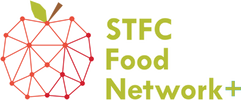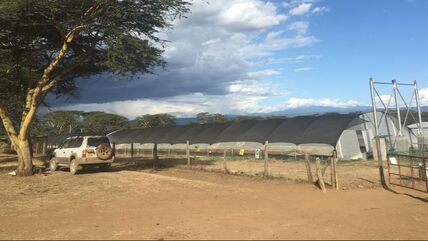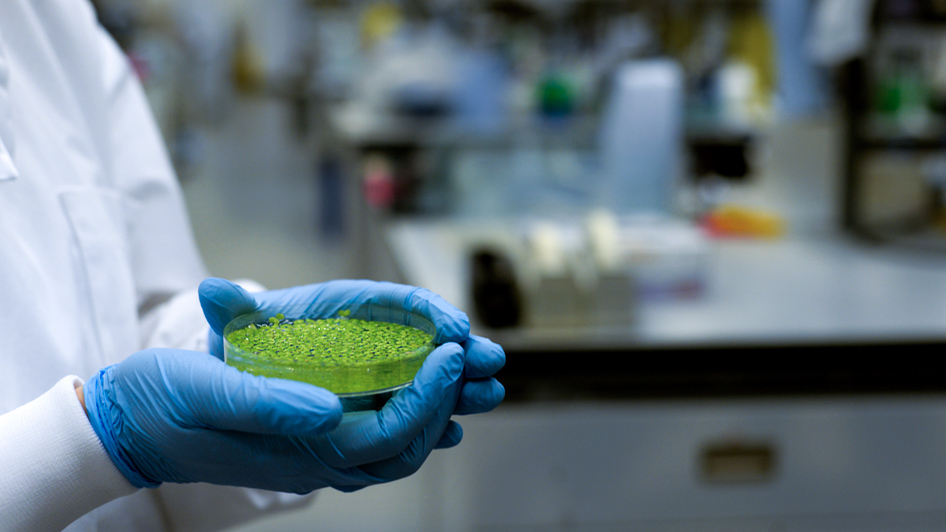|
The world has a protein problem – and one that will only get worse. Our over-reliance on soybean for animal feed is unsustainable and threatened by climate change. A project supported by the STFC Food Network+ (SFN) could have the solution: an unremarkable-looking plant you have probably never even heard of. The growing problem Whether we are vegans, vegetarians or carnivores, we all need protein. An astonishingly high proportion of our protein ultimately originates from a single crop – soybean. A key component of global livestock feeds, soybean is also used for many meat- and dairy-alternative products (such as plant-based burgers and soya milk). But this dependence is starting to cause serious problems as Sean Peters, CEO of start-up DryGro, explains: “Global meat consumption is expected to grow significantly in the years ahead, which puts pressure on soybean expansion in Brazil and Argentina. Climate change could also damage the productivity of agricultural land, causing yields to reduce.” Currently, 80% of soybean is grown in just three countries – the USA, Argentina and Brazil. This means it is far removed from communities in developing countries who then rely on expensive imports. “What we urgently need is a climate-proof protein source that can be grown in arid regions, closer to animal production communities” Sean says. Introducing Lemna Could a small, unremarkable-looking water plant be the answer? Meet Lemna; a genus of floating aquatic plants that resemble tiny lily pads. Also known as ‘water lentil’, Lemna has a protein content remarkably similar to soybean. It also grows astonishingly fast, forming thick, green blankets on the surface of water. Farmers across Asia and Africa have harvested these for hundreds of years to use as a protein ingredient. But scaling this up for industrial levels of production is hindered by Lemna’s aquatic nature. DryGro has taken on this challenge by developing enclosed growing units designed to be set up in many places around the world. These units maintain optimal growing conditions through an environmental management system, and build on recent advances in vertical farming techniques. But can this tiny duckweed really take on the monopoly of soybean? Sean certainly believes it can: “Per hectare, Lemna can produce eight times as much protein as soybean” he says. “This means that at industrial scale, DryGro’s growing facilities would be much more land efficient than soybean production.” And since this can be harvested every few days, Lemna offers a significantly more stable supply than the soybean industry, which only has two major harvests each year: once for the southern hemisphere and once for the northern hemisphere. Ultimately, Lemna-based animal feeds could act as an alternative to all soybean feeds for livestock, including chickens, pigs and certain farmed fish. Researchers from the Wrocław University of Technology, Poland, even found that feeding Lemna to chickens improves the quality of their eggs, with the authors concluding that Lemna could serve as a cheaper alternative to inorganic dietary additives [A].
Opening up new markets Lemna may be grown on ponds, but overall it uses 98% less water per tonne of product than soybean, because the water is recycled within the growing units. This makes Lemna production particularly suitable for arid regions, including land not currently used for agriculture. Lemna could therefore open up industrial-scale protein production in the eastern hemisphere, including Europe, Africa and Asia, and help avoid deforestation. This would be a particular benefit for countries such as Kenya, where practically all the soybean used in animal feed is imported due to a lack of local production. “Because the soybean value chain in Kenya is very long, farmers end up paying a higher price for a product that is typically inferior, as it can be tampered with along the way” says Sean. “This keeps the farmers in a constant poverty trap. But if we can produce animal feed locally, this could completely restructure the value chain.” The power of partnerships But before Lemna can go mainstream, it needs to be a reliable, consistent product. Thanks to a scoping award from SFN, DryGro has partnered with the Open University on a project to characterise the quality of Lemna grown under different temperatures and fertiliser concentrations. This will use the Open University’s spectroscopic equipment, which characterises the biochemical properties of samples based on how they interact with light. “The network has been incredibly supportive in fostering our collaboration with partners that have expertise in these techniques. As a start-up, this really lowered the barriers for us to access such high-spec laboratory equipment” Sean says. He adds that the SFN offered a much nimbler approach for them to access funding than many other avenues: “It was so refreshing not to have to undergo a typical, behemoth grant application process that eats up your soul. Instead, we were able to work out our proposal with just a few meetings and get it submitted within a week.” Whilst excited about DryGro’s potential, Sean clearly sees their work as part of a much wider movement towards more sustainable food systems, one that depends upon the multi-disciplinary work that SFN helps to facilitate. “It’s evident that what got us through the last century won’t get us through the next – the only solution is to research tomorrow’s technologies today. Groups such as the Knowledge Transfer Network and SFN make that happen. Advancements in research only benefit the rest of humanity if they become products, services or techniques that people can actually use. It’s through collaborative work like this that we can make it happen” Sean concludes. [A] Witkowska, Z., Saeid, A., Chojnacka, K., Dobrzanski, Z., Górecki, H., Michalak, I., Korczynski, M. and Opalinski, S., 2012. New biological dietary feed supplement for laying hens with microelements based on duckweed (Lemna minor). American Journal of Agricultural and Biological Sciences, 7(4), pp.482-493.
0 Comments
|
AuthorJune 2024 - Archives
June 2024
Categories |
- Home
- Webinars and Events
- About the SFN+
- News
- Blog
- Expert Working Groups
- Funding
-
Publications
- Bioeconomy positioning paper
- SFN+ 5th Annual Conference
- OMM Policy Report
- ‘Multi-Stakeholder International One Day Workshop on Organic Agri-Food Value Chains for Net Zero’ Report
- SFN 2050 UK Net Zero Food report
- Sustainable Cold Food Chain Booklet
- Food Sensing Technologies for Safe and Nutritious Food
- Sustainable urban and vertical farming
- Projects
- Join/Contact Us



 RSS Feed
RSS Feed


